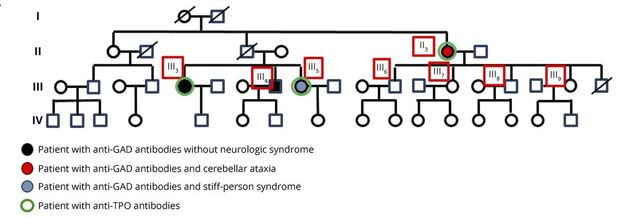WP3 - Genetic biomarkers and HLA haplotyping
Leader : Cécile Julier (PhD, Cochin institut)
Partners: FHU, ICM, LBBE, Cochin Institut, Stanford University
This workpackage is not funded under the PIA "Programme d'Investissement d'Avenir".
Very little is known regarding genetic predisposition to AE or PNS and only few articles with a small number of patients studied the hypothesis of HLA haplotypes conferring disease susceptibility. We identified HLA-DRB1*15:01~DQA1*01:02~DQB1*05:02 in patients with GAD-Abs and neurological syndromes and a specific association with DRB1*16:01~DQA1*01:02~DQB1*05:02 in patients with Yo-PCD and ovary cancer. In patients with NMDAR-Abs encephalitis, we screened in a preliminary study 215 patients’ DNA and also conducted GWAS. We identified a specific HLA haplotype in more than 60% of patients with NMDAR-Abs encephalitis and a polymorphism in the promoter of a protein that could regulate NMDAR expression. These preliminary data support the hypothesis that genetic biomarkers are associated with presence, subtypes or prognosis of AE and PNS.
This WP will be conducted in close relationship with WP1 using the blood DNA samples already and all the samples that will be collected during the project. The molecular pathways and the antigen partners identified in WP4 and WP5 will be also particularly studied in this WP. The HLA haplotyping will be essential to the identification of tumor neoantigens in WP4.
The aim of this WP will be to clarify the clinical value of potential genetic biomarkers and to identify new ones.
Task 3.1: HLA haplotyping in patients with PNS and AE
Objective: Systematically analyze the distribution of all HLA alleles at the level of the main HLA susceptibility loci, HLA A, B, C, DR, DQ and DP in all patients with AE or PNS to search for common or specific associations that would correlate with each known autoantibody.
Task 3.2: Tetramer analysis - Characterization of T cell responses to antigens
Objective: Establish an HLA association to obtain an understanding of the disease pathophysiology.
Task 3.3: Variant association in patients with AE and PNS
Objective: Genotype patients with AE and PNS at genome-wide level to identify possible variants increasing the risk to develop AE or PNS, or associated to a poor outcome.
Task 3.4: Joint genetic study of neurological and diabetes autoimmune syndromes: identification of genetic factors affecting neuron and pancreatic beta cell.
Objective: Identify genes that are involved in diabetes and autoimmune disease by selecting patients and families based on clinical, familial and population considerations. We will specifically target several subgroups of patients to enrich them for monogenic effects and perform genetic studies combining high density SNP genotyping and linkage study and whole exome sequencing (WES) to identify the responsible genes.



